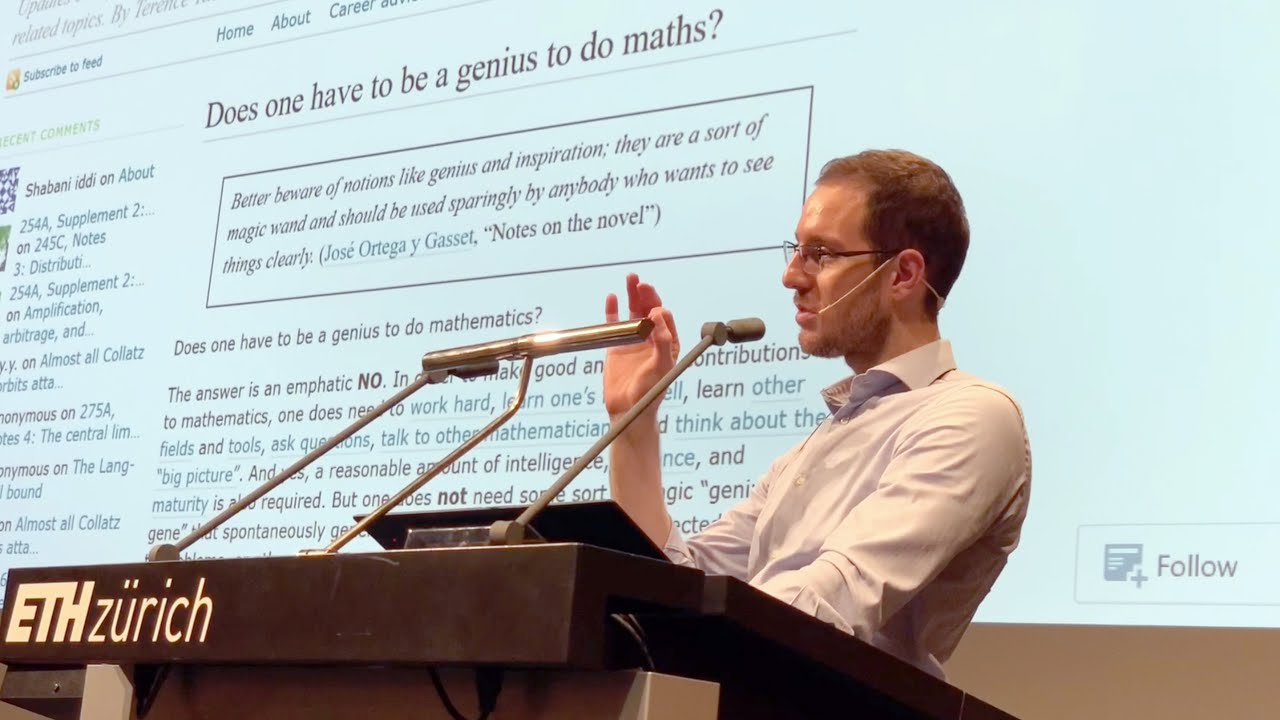An afternoon with Alessio Figalli
Last Thursday, high school students had the opportunity to meet Alessio Figalli, the winner of the 2018 Fields Medal, who gave the students a brief summary of his career and answered their many questions.
Alessio began by giving a summary of his career as a mathematician, as well as a brief description of the optimal transport problem, for which he received the 2018 Fields Medal. The 400 students, some of whom had travelled a long way to meet Alessio in person, then had the chance to ask questions in an extensive question-and-answer session. They came well prepared with numerous questions for Alessio about his life and career as a researcher, and also about mathematics in general.

When asked about where the beauty and usefulness of mathematics lies, Alessio admitted that mathematics could be very rigid at the beginning when student have to learn the basics. But he then went on to explain that after one gets past this initial phase, one then needs to be much more creative, and one learns to translate various real life phenomena into mathematical formulas to better understand the world and develop new technologies. He explained this using the example of the Fourier transformation, an idea introduced by the French mathematician Joseph Fourier 200 years ago, which is now used to transmit sounds and images to and from mobile phones.
I like to transmit a bit of my passion and enthusiasm for mathematics because it can make a difference in the life of the younger generation.Alessio Figalli
One of the most popular questions asked was whether you have to be a genius to study mathematics. Alessio referred to the answer given by Terence Tao who, himself having earned his doctorate at the age of just 21 and gone on to win the Fields Medal in 2006, is widely considered to be very close to what a genius might be. Terence’s answer to this question is: No, you don't have to be a genius to study mathematics. Alessio referred to external page Tao's blog which contains the following advice: "In order to make good and useful contributions to mathematics, one does need to work hard, learn one's field well, learn other fields and tools, ask questions, talk to other mathematicians, and think about the 'big picture'… But one does not need some sort of magic 'genius gene' that spontaneously generates ex nihilo deep insights, unexpected solutions to problems, or other supernatural abilities."
The pupils also wanted to know what life as a researcher is like, and if Alessio ever gave up on a mathematical problem. Alessio explained that setbacks are part of a researcher's everyday life, and described how he first became interested in the optimal transport problem and how much time it took him until he found the right idea to solve the problem. He said that he thinks every researcher has their own way of doing research, and gave the students some advice: "If you fail, it’s not because you are a bad mathematician. You fail because the problem is difficult! Otherwise it would have been solved a long time ago."
One of the final questions was if Alessio had any general advice for the younger generation. He highlighted the ability to adapt to change as being particularly important in a constantly changing society. For him, this adaptation occurs through lifelong learning. Schools teach us to learn, and with this ability we can adapt to most of the things that life might bring.
The advice of Alessio to simply follow my interests and indulge my passions has something reassuring.Sandra Rosato, high school student